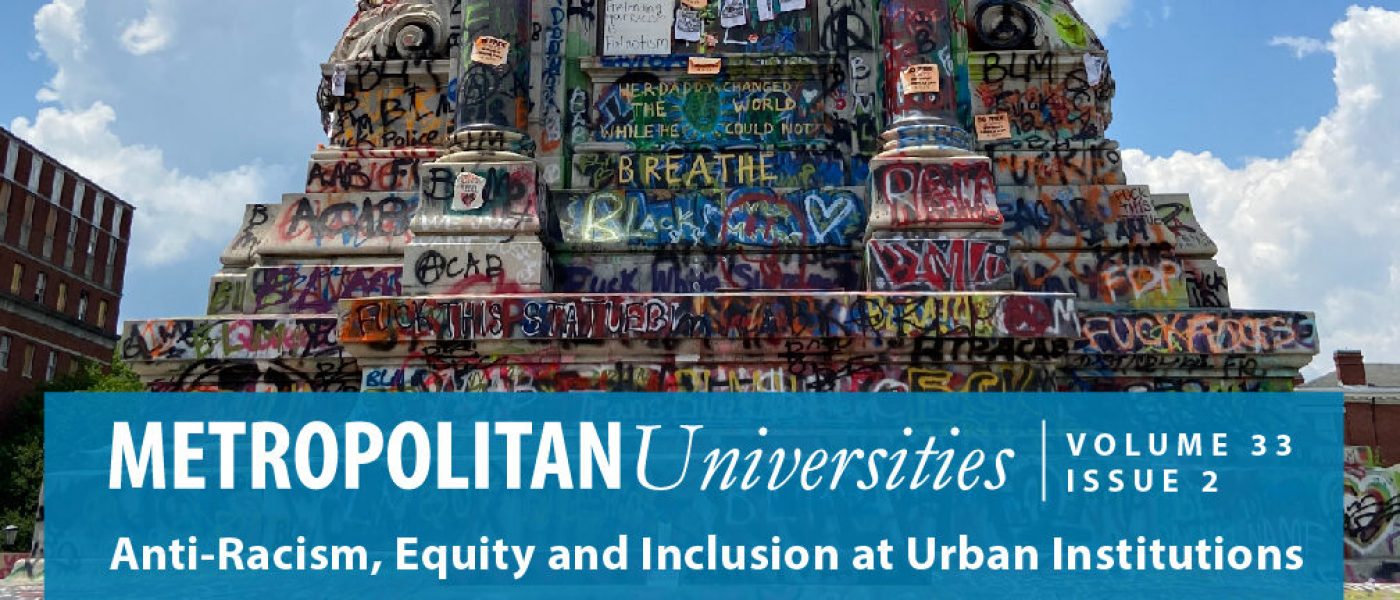Over the past six years, higher education’s collective challenge to adequately and effectively address continuing issues of inequity and lack of inclusion have been the impetus for vocal student criticism and widespread protest. The deaths of George Floyd, Breonna Taylor and Ahmaud Arbrey have ignited national and global calls to address long-standing issues of racism and injustice within the United States. This focus is all the more urgent in light of the notable demographic trends reflecting the browning of America, including the increased enrollment of students of color within institutions of higher education, the lagging presence of leaders of color within the academy, and cohort changes among faculty often reflecting the stratification of increases in the browning and feminization of more junior/earlier career and term/adjunct faculty. For urban institutions with missions calling for their collaboration and relevance to their proximal urban communities, communities which have proportionately higher representation of members of minoritized communities, the pull to address issues of equity, inclusion and anti-racism is especially important.
The current issue of MUJ features manuscripts that contribute to and expand our understanding and knowledge base informing empirically-informed and evidence-based programming, interventions, and policies strengthening inclusion, equity and anti-racist practices at urban institutions.
Operationalizing Antiracism in Higher Education Community Engagement
- Dr. Stella Smith, Collaboratory’s 2020-2021 Research Fellow and Associate Director for the Minority Achievement, Creativity, and High-Ability (MACH III) Center and an Adjunct Instructor in the Department of Educational Leadership and Counseling at Prairie View A&M University
- Kristin Medlin, co-founder and Director of Research and Development, Collaboratory
- Dr. Lauren Wendling, Director of Institutional Success, Collaboratory
Want to Learn More About Collaboratory?
If your institution is interested to learn more about how to leverage Collaboratory to tell your story of engagement, email info@cecollaboratory.
